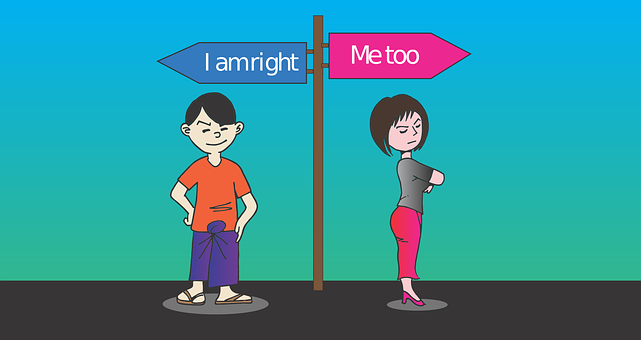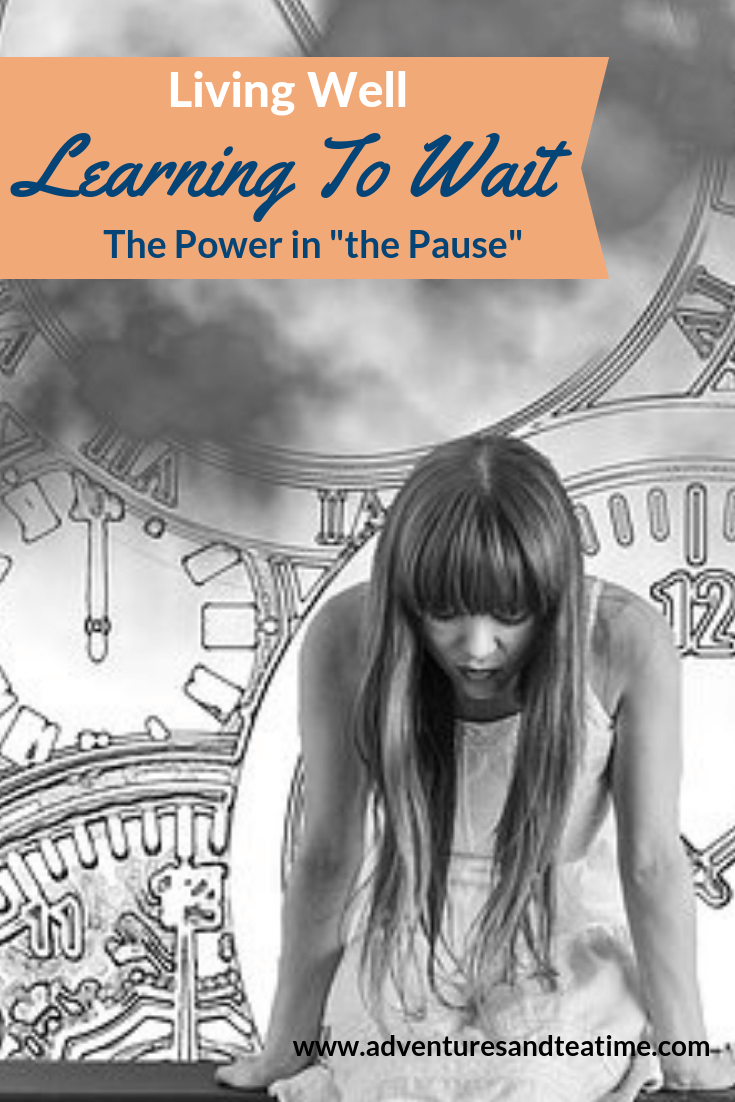I don’t know if any of you know how absolutely HARD it is to watch one of your grown children go through a difficult situation and not be able to do anything about it.
Of course, you know no matter how much you want to protect them from any and everything that hurts, difficult situations are imperative to growth and help develop wisdom and character and all that good stuff.
And of course you know. .even if they don’t know…
Because you’ve been there a half-dozen times…
They WILL come through the situation, they WILL be okay, and they WILL be stronger for it.
But y’all.
I’m telling you that even my own periods of self-destruction in my life did not prepare me for this.
NO-THING in my life prepared me to have to stand by and watch my child, my precious baby, running through his life like a bull in a china shop, blindly REACTING in the midst of his hurt and anger.
I could not stop it.
There was nothing I could tell him to make him stop it.
It was like watching my adult child fight to keep from drowning…in two inches of water.
Heart wrenching.
The Lesson
But life, being the great teacher it is, will always use the difficult and challenging situations to bring revelation if we’re open to the lesson.
In all fairness, it’s usually easier to recognize the lessons when you’re on the outside looking in rather than the one being consumed by the fire.
So what was revealed to me in the midst of all this was that SO OFTEN many of our problems are brought on or exacerbated by our inability…or rather our unwillingness to wait.
Those who are good at waiting were likely not born that way. Similar to building muscle strength, it is a skill that, for most of us, is developed through repetition and practice.
You see, I consider myself a professional problem solver. I figure out ways to fix things. It’s what I do.
Whether in business or my personal life, give me a problem and I’ll give you a handful of possible ways to solve it. If the answer is no, I’ll ask someone else. Shut the door and I’ll try the window. If the window is closed, I’ll dig a tunnel. You get the idea.
So waiting is not something that has ever come easily to me. However, with a little age, a whole lot of practice, and lessons learned from NOT waiting, I have gotten a tiny bit better.
A Dying Skill
Now meet me here, present day, in what I will call the “age of instant gratification”.
Waiting is becoming a dying skill. The benefits of waiting are drowning in a perpetual sea of thoughtless, and often times irrational REACTION.
The effects of this are seeping into the cracks and crevices of our society and will penetrate deeper than we can even fathom right now.
We have a hard time waiting in line at the store.
We get angry when we have to wait in traffic…or if someone doesn’t move fast enough when the light turns green.
We are easily offended and quick to react.
We want to speak our opinions freely yet have no desire to listen to others.
We often let our emotions override logic…and act from that place.
Don’t get me wrong, I love technology.
I love to research and learn new things. I can blog. I love that I can instantly communicate with people, read books and listen to music. I no longer have to wait for my song to come on the radio, so I can record it and listen later. I no longer have to wait for Saturday morning to watch cartoons and I can pay every single one of my bills without ever leaving my chair.
The role technology plays in medicine, and travel, and communication is extraordinary, and I can only imagine where it will take us in the future.
The point is that we just don’t have to wait for much of anything anymore.
More importantly, we have an entire generation of young people who have very limited experience in the art of waiting.
Learning to wait is a skill that is no longer being developed at an early age, nor is it something we discuss often or practice regularly.
Ironically, when facing a difficult situation, few things will help you get through like the ability to wait.
Wisdom is BORN of waiting.
Hone this skill young people! Your future selves will thank you.
Waiting to Speak

My father once said to me, “You do know that everything that goes through your head does not have to come out of your mouth?”
It was something my child mind had simply never considered. I mean, why not?
As it turns out it would take many, many years for this to really sink in. It had always made sense, kind of, but I would be in my mid-twenties before I ever TRULY understood.
Now I’m not saying you shouldn’t speak your truth or say what’s on your mind, but most times it is wise to think BEFORE you speak. ESPECIALLY when the topic at hand is something you feel strongly or are passionate about.
In Conversation

Often, in conversation, one person is speaking and the other is simply waiting their turn to speak. Not listening, but thinking about what they are going to say when the other person stops talking.
When you choose to think before speaking in conversation, you;
- Take the opportunity to listen to others and hear their unique perspective. You may learn something.
- In doing so, you let others know what they have to say matters. They feel like they have been heard.
In Conflict

A lot of times when we disagree with someone, we immediately begin trying to tell them why WE are right, and THEY are wrong.
We may try to convince them that they need to concede to our position or beliefs.
I can say with one hundred percent certainty that anywhere conflict shows up in your life your emotions are involved.
If not, there would be no conflict.
Don’t believe me? Try thinking of ONE conflict in your life where you have been able to remain completely calm and unemotional.
Most often when we perceive that someone has wronged us in some way we experience hurt feelings, betrayal, anger, jealousy, or even just a sense of unease.
Immediate thoughts may be that we are going to tell that person off! Or, how could they do this to me?
We may plot what we will say to that person the next time we see them, or that somehow we’ll make them sorry for what they have done.
We need to make them understand how what they have said or done to us is wrong and if they’re not sorry…well we’ll just have to show them who they’re messing with!
Quick reactions are fueled by motives like anger, jealousy, pride, and revenge.
A person who acts routinely from a heightened emotional state is typically seen as a person who lacks discipline and self-control.
When you choose to pause before acting in the midst of conflict;
- You create space between your emotions and your response. **This is so important.
- You give yourself the opportunity to better assess the situation (the ACTUAL situation and not the dramatic production going on in your mind)
- You create the opportunity to be able to RESPOND in a more intelligent and loving manner vs. simply REACTING.
- You may avoid making a bad situation worse.
- You may avoid doing something you will later regret.
- You may avoid making a complete ass of yourself.
There is great wisdom in knowing when to speak immediately and when you need to take a pause first.
In General

The pause is not only effective in the midst of conflict. It can also be extremely helpful in other situations, like when deciding whether or not to accept a fantastic new opportunity or making a major purchase
At any given time there is something in our lives that requires some level of decision making.
All decisions will ultimately affect your life.
It would not be wise to run around making decisions based on impulse all the time.
For example, Buying a cool new gadget before realizing there was no place for it in your budget. Or quitting your job over a disagreement with a coworker.
Making CONSCIOUS decisions means taking RESPONSIBILITY for your decisions, their potential outcomes, and their effects on yourself and others.
It is up to you to make CONSCIOUS decisions.
When you choose to pause before acting in life;
- You create space between your emotions and your decisions. **And again, here we are.
- You allow yourself time to think things through, weighing the pros and cons along with potential effects and outcomes.
- You create a space where you are better able to make conscious decisions.
- You avoid making rash, emotionally based decisions
- You avoid potentially doing irreparable damage to yourself, your career, relationships, finances, and reputation.
In Action
Try exploring different ways to handle situations by imagining yourself deciding. Then allow the different possible outcomes to play out in your mind.
Doing this will allow you to explore the possible effects of a decision before actually making the decision.
Questions to ask yourself in the face of any decision;
- Is it potentially harmful to myself or another?
- Is it productive?
- Is it legal?
- How will I feel about it in 1 week? 1 year?
- How will this affect those around me? Those I love? Those who love me?
- What are the ways this could potentially affect or impact my life? (Possible benefits or repercussions? Pros and Cons?)
- Does this decision line up with my idea of who and what I want to be? My core values?
In Conclusion
There is infinite value in the ability to pause and reflect.
And remember that sometimes waiting IS the answer. Sometimes it’s okay to simply let things play out the way they will…without your interference. Sometimes when we interfere things get way messier than they needed to be.
Be open to ALLOWING the natural unfolding of things.
Practice waiting, watching, observing.
Take time to pause, reflect, and act with intention.
Your best life is now…






You made a few nice points there. I did a search on the subject matter and found most folks will have the same opinion with your blog.
Thank you so much for reading my post and taking the time to offer your feedback. Much appreciated!
Hi! I’m at work surfing around your blog from my new apple iphone! Just wanted to say I love reading your blog and look forward to all your posts! Keep up the fantastic work!
Thank you so much for the encouraging feedback.
Pretty nice post. I simply stumbled upon your blog and wished to mention that I’ve really enjoyed surfing around your
weblog posts. In any case I’ll be subscribing to your rss feed and I am hoping
you write once more very soon!
indoor ficus tree care
how long does it take an avocado to grow
how to make an avocado tree bear fruit
flowering bonsai tree types
orlandobonsaitv
dwarf juniper bonsai
what is bonsai
fukien tea bonsai flowers
bonsai tree how long to grow
Also visit my blog post; bunn coffee makers
Im thankful for the blog article. Want more.
I抦 not sure where you’re getting your information, but good topic. I needs to spend some time learning more or understanding more. Thanks for magnificent information I was looking for this information for my mission.